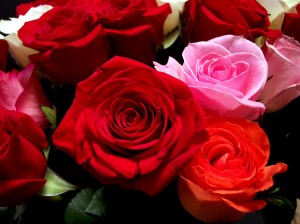Playing With Wolfgang: A Romantic Accusation 2
 “You’re a romantic!” said my teacher in a surprised voice, as though this explained everything he found perplexing about me. I had never been accused of being anything but a pianist—romantic or no. I can’t remember what I was playing and it wasn’t necessarily meant as a compliment, though for some reason I felt a surge of triumph at the thought. I’m sure my teacher, who had lived and performed throughout the world and lived a full life which included a recovery from addiction, had little patience with my starry-eyed view of life.
“You’re a romantic!” said my teacher in a surprised voice, as though this explained everything he found perplexing about me. I had never been accused of being anything but a pianist—romantic or no. I can’t remember what I was playing and it wasn’t necessarily meant as a compliment, though for some reason I felt a surge of triumph at the thought. I’m sure my teacher, who had lived and performed throughout the world and lived a full life which included a recovery from addiction, had little patience with my starry-eyed view of life.
I was 23 at the time and young for my age. I grew up in a family where we were shielded from the darker side of being human. In our house there was no critiquing or discussing of issues—my father routinely refused to let us talk about anything “negative”. By the time of the accusation, I had lived away from home for several years and had even had my heart broken once but was still naïve and wildly innocent.
I looked up the word romantic and it’s antonyms on the interweb and here’s what unfolded.
Marked by the imaginative or emotional appeal of what is heroic, adventurous, remote, mysterious, or idealized (Merriam-Webster)
Of or relating to music of the 19th century characterized by an emphasis on subjective emotional qualities and freedom of form (Merriam-Webster)
Impractical, visionary, or idealistic (Free Online Dictionary)
hmmm… What’s the line from South Pacific? They call me a cock-eyed optimist, immature and incurably green. Still, being a romantic at age 23 is not a bad thing—especially if your dream is to be an artist. You need to be passionate, visionary and even a bit unrealistic to maintain the inner strength to follow your dreams. Over the years, my views have been tempered with realism, practicality, and sensibility and I have come to terms with the shameful and evil aspects of living a human life. Of course, it took some time for that blending to find it’s way into my music. Madeline L’Engle talks about not being an age but rather being every age you have ever been—in other words, being and accessing the sum of all your experiences.
It is always a privilege to watch students grow and mature—to begin “adulting”. The process of maturity can be painful and emotionally charged. The ones who succeed in achieving artistry are those who are able, at their level, to acknowledge the darkness and evil in the world and balance it with the joys of being human—those who can use the sum of their life experience. Students who persist in unrealistic fairy tale views of life and relationships and/or shut off what they are ashamed of or do not like, simply do not ever get to the heart of the music—to the joy.
The hard part for any teacher or mentor is to gauge when the time is right to broaden a students conception of a piece. How adult can we make our comparisons? What is an appropriate equivalent to romantic passion? To hatred and enmity? It is always a mistake to misjudge the depth of which a student is capable—to essentially dumb a piece down. How much darkness can a student handle right now? How much light?
And, isn’t that the essence of true romanticism anyway?
Portions of this post were published in May of 2012


